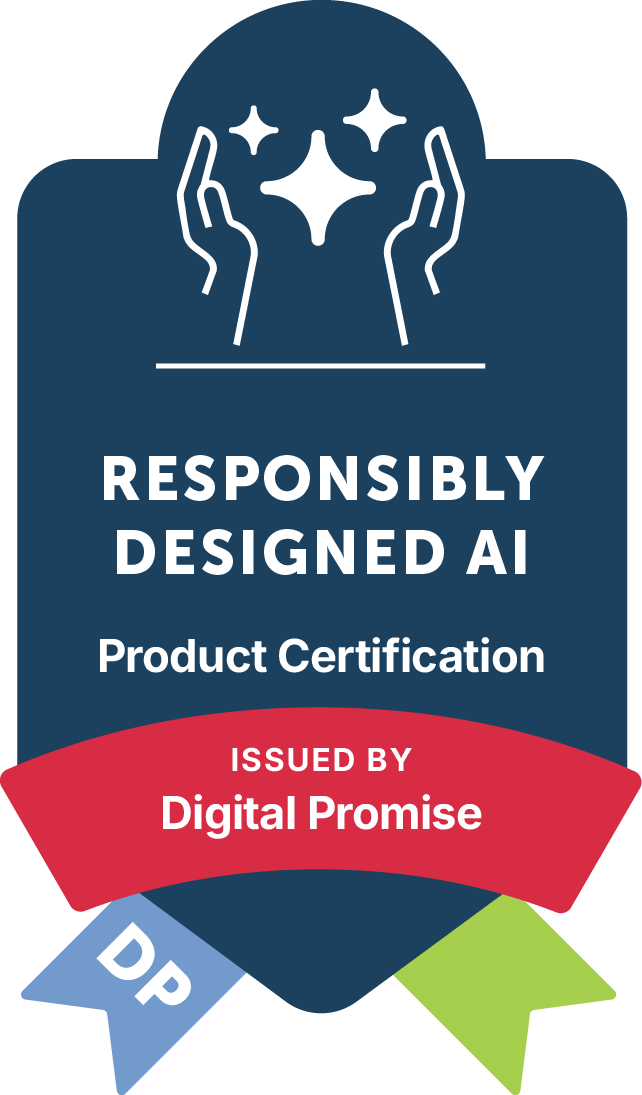

Earning the Responsibly Designed AI certification demonstrates that the edtech developers designed the AI in the product to reduce algorithmic bias, provide transparency about data collection and security, include labeling of generative AI content, and equip educators with agency while engaging with AI outputs.
Learn more about how the Responsibly Designed AI product certification was developed in this blog post.
A product that earns this certification must submit evidence to demonstrate the following:
This certification expires after two years. Earners are welcome to re-apply to retain certification status.
What other certifications are there? Learn about the Research-Based Design: ESSA Tier 4 product certification here.
Digital Promise's Responsibly Designed AI product certification recognizes AI-powered educational tools that prioritize educator and learner autonomy, data privacy and security, and transparency in AI usage. The first four recipients of this certification have shared their insights through a blog post series, detailing their approaches to responsible AI design in education.